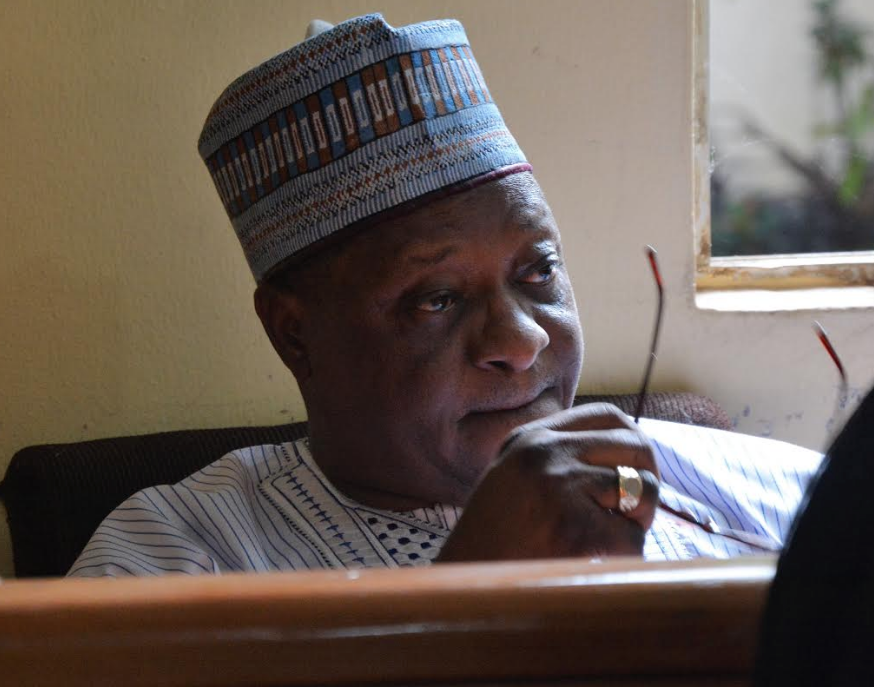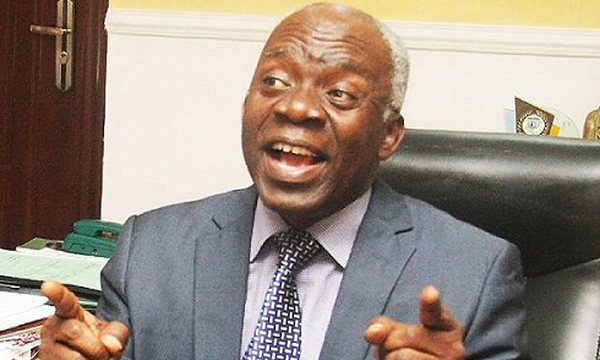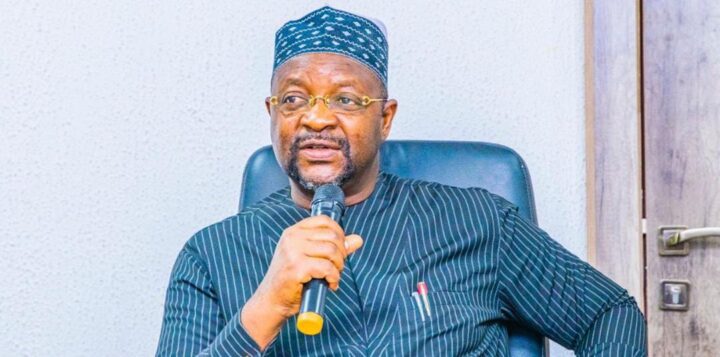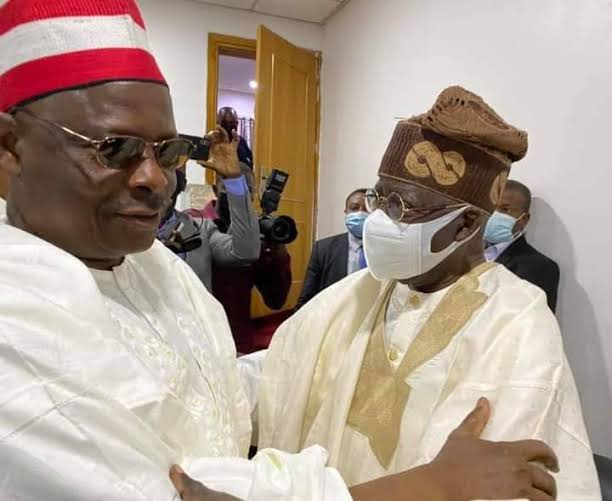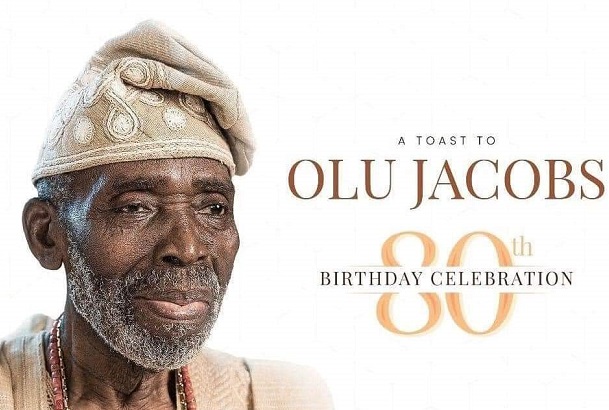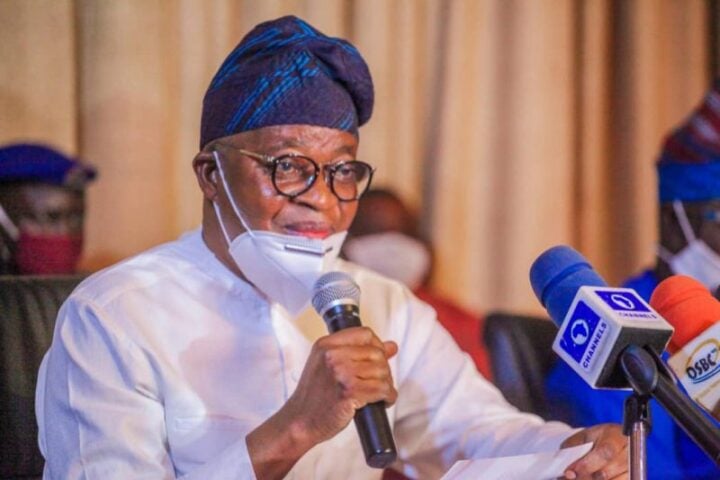Nigeria: Time for the grand design (3)
BY AMIN BUBA DIBAL
One fundamental difference between humans and animals or of their societies is that as the former is driven by instinct or reflex, the latter is or ought to be driven by reason accompanied by rights and ethical duties as led and inspired by leadership. On the validity of this philosophy, we ought to remind ourselves as a people and bring social consciousness to some of our elites and leaders about the dangerous drifting of our society to the potential abyss of a failed state, from the perspective of values and ethics in some key social institutions of our society – politics, and governance.
A society rarely survives without some formed and widely accepted code of values and ethics not just at the foundational level which we do have with its roots in the two major faiths we largely profess rather than practice — Christianity and Islam — but at the normative level in society to guide politics and governance processes. This is significant to keep the social sanity of society and its institutions, facilitate its development and guarantee a sustainable future.
In the light of Os Guinness’ foremost phrase, “comparison is the mother of clarity”, brings the applicability of the concept to the similarity between for example how man inflicts ecological damage to his environment through unsustainable activities with the potential of destruction of ethical norms in politics and governance through unsustainable social actions. Both ecologically and socially, irresponsible practices have tremendous negative trickle effects to environment and society.
Advertisement
Nigeria is a “practicing” democracy but in practice we have not demonstrated its values, but leadership is deeply entrenching elements of plutocracy and feudalism in our political system from recruitment processes to governance by commission and often deliberate omissions. These two archaic tendencies and systems — plutocracy and feudalism — were long overtaken in medieval Europe, 400 and 800 years ago respectively. We do not need to wait for 400 or 800 years to have our society or democracy evolve as we leave in a globalized world with access to information, opportunities for inferential learning from other societies and availability of strategic international support at a tremendous level except for “political will of leadership and patriotism” that we lack as a nation.
Thus, the political culture of our society has been predisposed as a commercial venture to grab power not through dialogue about options for progress of society, social contract between led and leaders but through vote buying, brazen stealing of ballot boxes by hired thugs, intimidation and violence. Along this path, other unethical practices against virtues of a sustainably sane society such as inclusion, tolerance, ethics, equity, social justice are dispelled in a Machiavellian approach to securing power of “the end justifies the means”, despite the depth of its self-destructive and internal contradictions, incompatibility to persons and society, at the individual and societal levels in the long run.
At the functional level because of the vain and ideological empty political norm we have but money and god-father politics we play, we see the empty glorification of experience as the highest good for leadership. However, the country has grossly declined despite the “experience”, we see the concentration of enormous power in the hands of so many men/women with no vision, purpose, a sense of responsibility, understanding and patriotism to put society on path of transformation.
Advertisement
We see ones in privileged place of power sabotage LGA autonomy, hijack party machinery, issue out return tickets to those preferred by mundane instincts, political worth and preference by “king makers” for contestants determined by the capacity for dehumanization, criminal records and proclivity to criminal tendencies, bills proposed for improving genuine governance reform frustrated and any call for a common good perceived as weakness. When those in executive power leave or move to the Senate or House of Representatives, they lose relevance and sometimes pushed to political retirement, by the new person in power from the same constituency who will maximise power absolutely as well in a crude sphere that never protects the weak nor regulates the powerful. No one could push them out until maybe another proud embezzler comes home to challenge them or push them out with Abuja or Petro-dollar money since the only language the political system understands as nurtured by leaders and elites is bidding for power against all forms or constructive discourse for a better society for all.
It is significant to note that the democracies we attempt to emulate, cherish their system, hide stolen wealth there, visit for vacation and medical attention have definite noble ideals and principles which they hold sacred to sustain the sanity of their preferred state of society and do not trade it for “interest” or “ the numbers”, as this famous saying goes, “…Man does not leave by bread alone” – and if I may add is that he leaves by principles, values and ethics as well which overarchingly guarantees the survival of his society.
The political environment is further riddled by mistrust at all levels between groups, politics of divisiveness because of emptiness of debatable ideas, acute hate on social media, inability to manage social diversity but exploited for self-interest at the peril of entire society, inability for institutional organisation, incapacity for applied ethics and learning (especially by leaders) and lack of a shared meaning for the cohesion of society which ought to resonate with all in a common solidarity. A great disgust for any tendency of good for the public or any aspiring person but admiration for criminal crooks and money politicians.
We largely do not have any semblance of hierarchy of perception between elites and those at the bottom of society, of those at the bottom pauperized and traumatized by poverty what they desire at every first value of every engagement or opportunity of social interaction is what they get at a personal level, and the same goes for most elites and leaders. No truth or ethics is attempted to be upheld at many levels but everything a phenomenon as we contemplate the decline of our political system with indifference and triviality as described in the broad perspective of Albert Camus’ discourse on the Human Crisis.
Advertisement
The irony of this disdain political culture but admired and cherished by some political leaders and elites is that round the world, there is no society that ever leaped an inch towards progress with such political culture, so for what good is this? This is the vicious circle a country has found itself politically.
“Political culture is set of attitudes, beliefs and sentiments which give order to a political process and which provide the underlying assumptions and rules that govern behaviour in the political sphere” as basically defined by Lucian Pye. Logically, our political system’s grim features cannot give us attitudes, beliefs and sentiments that helps build a progressive and sustainable society.
In governance terms, our institutions primarily exist to nourish themselves and the few privileged Nigerian which operate them which stand at less than 5% of the population. Thus, we see the nations budgets broadly over 75% at the tiers of government as recurrent expenditure to service largely fictitious needs though which never get released but hijacked at the highest levels. The fraction of that which are service delivery to the public as part of the recurrent, they are mediocre and grossly disproportionate to funds allocated and service rendered. The processes of governance are grossly devoid of transparency and accountability.
Other forms of the chaos in our governance system are in sale of public job offers by highly placed public officials to the highest bidder, embezzlement of pensions funds of hard-earned deductions of poor civil servants who have served over 35 years of service. Inability to guarantee safety and security as bandits, kidnappers and insurgents keep terrorizing citizens and we remain in the list of 10 most terrorised country in the world with countries like Syria in the group according to the Institute for Economics & Peace (IEP), 2021. Doctors leave the country in droves, according to the Nigeria Medical Association, over 9000 have left the shores of Nigeria in the last two years and with a ratio of 2,500 persons to a nurse as they also leave because of neglect of the system. In the education sector, Nigerians spend over $90 million on education abroad even to other African countries as the academic system suffers neglect and perennial industrial strikes. Budget meant to deliver infrastructural dividends are siphoned and thus roads for example become death traps where thousands lost their loved ones annually.
Advertisement
Leaders and elites of our society live in a delusion that because Nigerians are comfortable with the deplorable living condition and the culture of our political system given their culpability (though induced by leadership). However, a basic analysis of perception as widely observed is that at the mid-level and bottom of our society, the people understand they are broadly badly led, deeply exploited at many levels, the political culture grossly corrupted, call many leaders dirty names in their private spaces and desperately cherish a better system that works for all but do not know how to come about it because of hijacked systems at many levels.
The disillusionment in poor leadership and collapsed political culture thus manifest itself in ever declining public trust and political apathy since 1999 and recently by the poor level of participation in the 2019 general election which had only 28.6 million people voted-out of 82.3 million registered by INEC; We see it in the Store breaks of COVID-19 relief items; the # ENDSARS crisis; monitisation of all aspects of our social interaction as if Nigeria humans were animal and only survive for what they will get to eat; widespread shallowness in public discourse about what constitutes the qualities of leadership; growth of crude individualism against any idea of the collective good of all as sensed by followers on the part of leaders and elites thus emulated; unprecedented growth in crime and terrorism and collapsed sense of sacredness and sanctity of human life; regional agitations for self-determination; sabotage of systems; growing regional, ethnic and religious inclinations against an idea of a nation. Despite all of this, leaders do not seem to understand these sad developments around us and see them as symbolic events and situations which expresses something fundamentally wrong about the state of the nation and its dangerous path. Thus, inform an attempt to bring about genuine change in a proportionate manner to the quantum of decline in our systems.
Advertisement
The state of oblivion and manifested character of many of our leaders and elites in the face of the grim reality discussed is best described by a story I heard about a nuclear energy symposium held in ABU Zaria some few years to discuss the prospects of nuclear technology to respond to the energy crisis in Nigeria. As narrated, after all papers presented about the various potentials we have to actually experiment the idea, an international participant and presenter at the end of the event said in his presentation, that of all the viable potentials we have, one key thing but most important along our aspiration is that as a people we lack “…a culture of prudence” to manage a nuclear system. Theologically speaking, a “culture of prudence” emanates from “the virtue that disposes practical reason to discern our true good in every circumstance and to choose the right means of achieving it”. We truly lack this quality at a very wide level amongst leaders and fellow citizens in our attitude to especially public life.
The trajectory of disillusionment in our political and governance systems could present us with different future scenarios as informed by the sudden astronomical rise in interest by Nigerians to register and participate in the 2023 elections.
Advertisement
First, a Fabian element model to bringing reform could be a path of response of Nigerians to the enterprise politics and poor governance. The Fabian model subscribes to principles of gradualist and reformist effort in a democracy, rather than other non-democratic approaches. But the challenge to this are high skepticism of the genuineness of leaders to bring about an egalitarian society, lessons of response to bad leadership by other societies from around the global village through social media and the unpredictable responses it could inform in the Nigeria context.
Second, another potential scenario in response to the decline of our political and governance systems could manifest in increased tension during elections and probably more electoral violence. This is as the desperation increases for political participation by citizens, fueled by hunger and economic stress meets desperate efforts by many political leaders seeking to hold to the coffers of government thus sponsor thuggery, vote buying, ballot box snatching and sponsored violence. With so many frustrated people because of failed systems and limited social opportunities in our fragile society, the future could be undesirable if not reversed.
Advertisement
Either of the scenarios is empirically possible, as no society is static but evolves along the characteristic of its social reality. The development around the need for improvement in society is currently being witnessed again in another form, the surge in citizen’s interest to register and participate in the 2023 elections given improvement in the Electoral Act.
The poor state of our leadership in many respects and gross decline in capacity for governance could be reversed with basically genuine love for country, political will, and accountability.
Amin Buba Dibal is a public commentator. He writes from Kano state.
Add a comment

